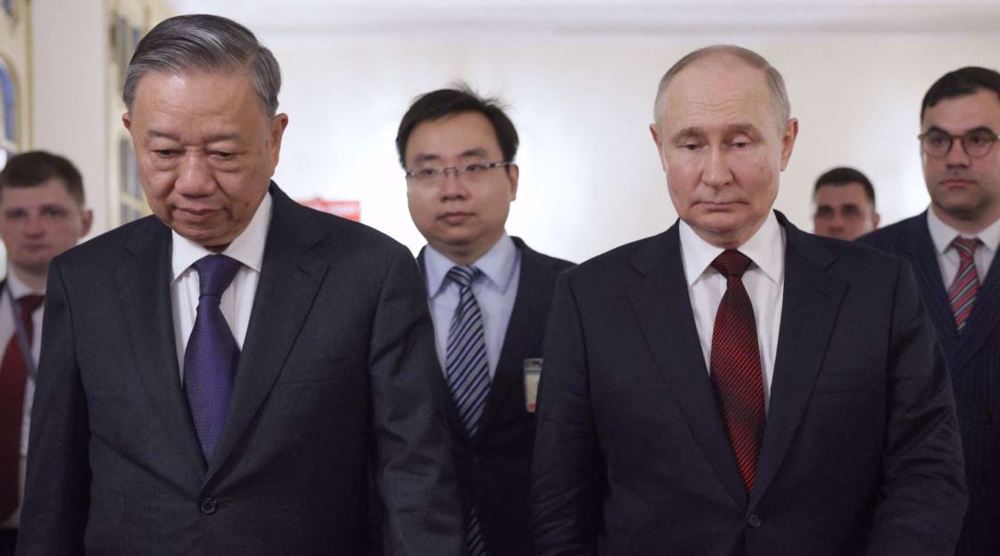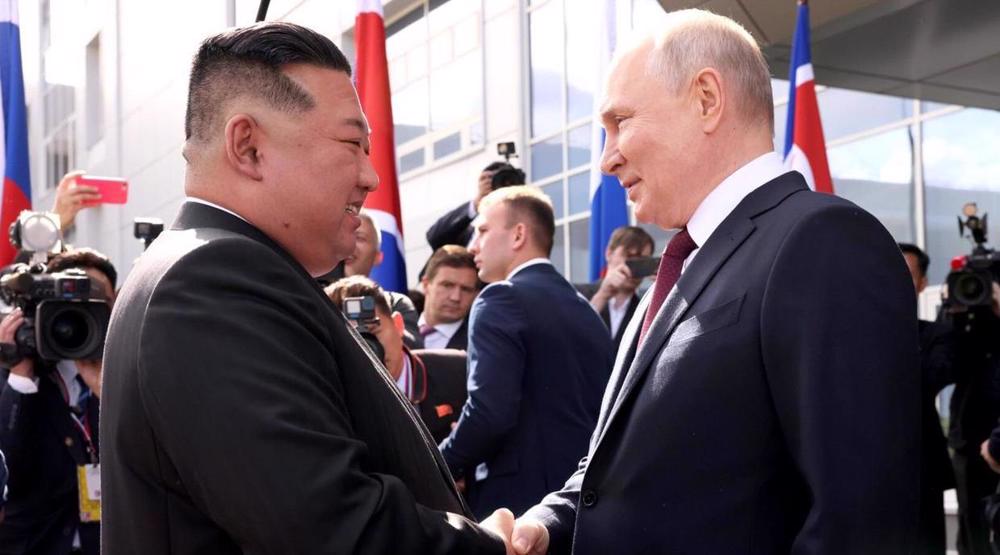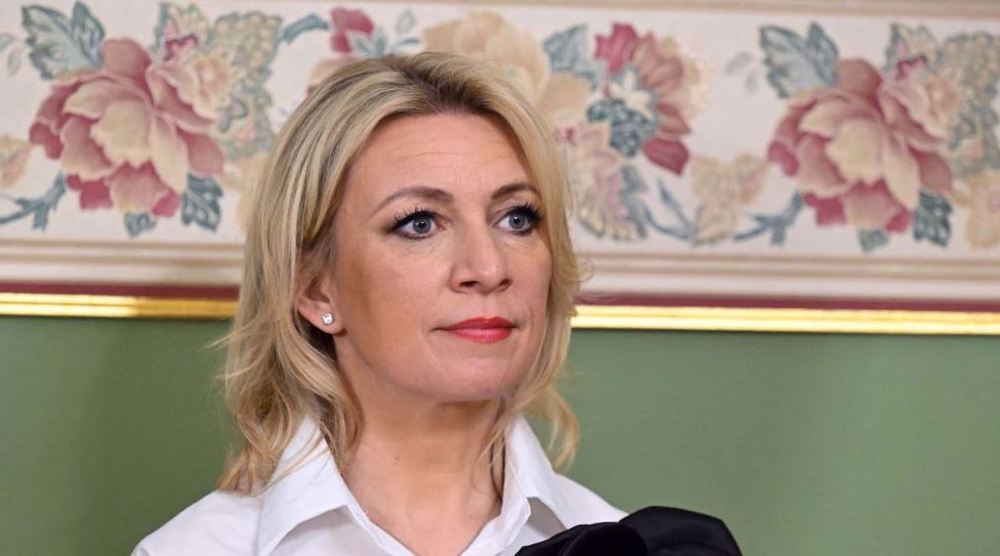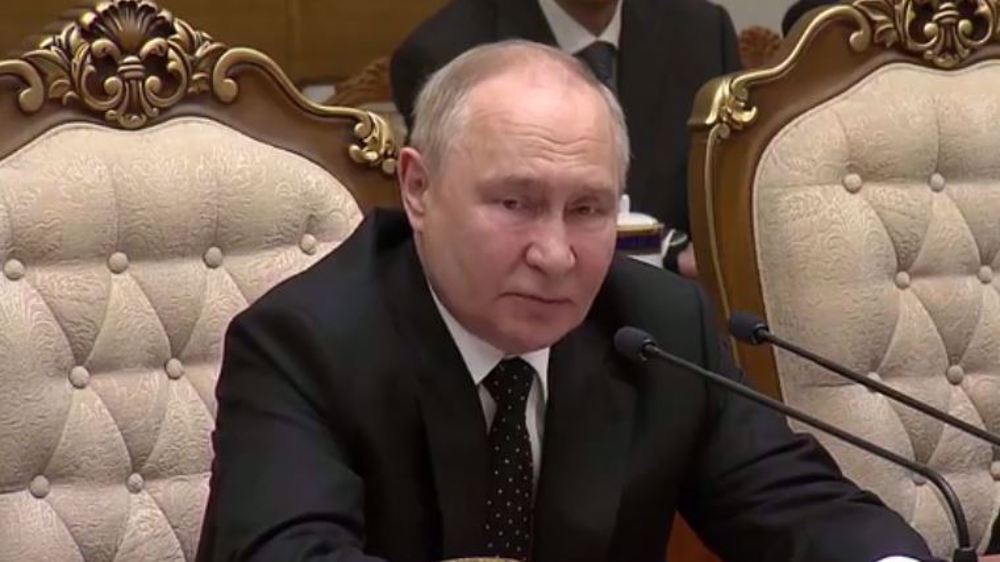Putin visits Vietnam to establish new ‘security architecture’
President Vladimir Putin of Russia has made a state visit to Vietnam aimed at bolstering ties to establish a new “security architecture” in the region.
Putin arrived in Hanoi on Thursday after a stop in North Korea, where a new security pact was signed strengthening the already cordial relations between the two neighboring countries.
On Thursday, Putin continued on the objective of deepening relations with Moscow’s regional allies by signing at least a dozen more deals with his Vietnamese counterpart.
The new deals signed by Putin and Vietnamese President To Lam covered a wide range of issues, including cooperation in education, science and technology, oil and gas exploration, clean energy, health, nuclear technology, and other deals that were not made public.
Putin said the two countries shared interests in “developing a reliable security architecture” in the Asia-Pacific region, and that both sides had “identical or very close” positions on key international issues.
Lam told reporters after talks with Putin that both nations pursued a common goal that required Moscow and Hanoi to “further cooperate in defense and security.”
"The two sides want to push up cooperation in defense and security, how to deal with non-traditional security challenges on the basis of international law, for peace and security in the region and the world," Lam said.
The two leaders also clarified in a joint statement that their defense and security cooperation was "not directed against any third country" and contributed to "peace, stability and sustainable development" in the Asia-Pacific region.
Nguyen Khac Giang, an analyst at Singapore’s ISEAS-Yusof Ishak Institute, told media that the Russians provided two important services in Vietnam. Firstly, Russia is the biggest supplier of energy and defense equipment to the Southeast Asian nation. Second, Russian oil exploration technologies help Vietnam develop its resources.
Vietnam is a decades-long ally of Russia. Moscow has been a main supplier of weaponry to Hanoi, accounting for more than 80 percent of imports between 1995 and 2023.
In UN votes, Vietnam has abstained condemning the Russian operation in Ukraine, and in an op-ed in the Communist Party newspaper Nhan Dan, Putin thanked Hanoi for its "balanced stance on the Ukraine crisis".
Also, Vietnam is a major producer exporting its products worldwide and has carefully hedged its foreign policy position for years, seeking to be friends with all sides.
As countries seek to increase their diplomatic clout in Southeast Asia, Hanoi tries to avoid picking sides in the intensified global rivalry.
In September, US President Joe Biden visited Hanoi to promote ties as his administration seeks to build up Vietnam as an alternative supplier of key high-tech components to reduce American dependence on China.
Biden’s visit to Vietnam also aimed to shore up support against China’s increasing influence in the world.
China's President Xi Jinping, however, made his own state visit to Vietnam about three months later, consolidating Beijing's traditional relations with its neighbor.
Putin on Wednesday signed a security pact with North Korean leader Kim Jong-un, pledging mutual aid in the event of a military invasion on the countries. Kim vowed "full support and solidarity" with Russia over the war in Ukraine.
Putin's Asia tour came as Western powers stepped up sanctions aimed at constraining Russia's war in Ukraine.
The United States, Britain and the European Union all announced new sanctions over the past week, while the G7 agreed to use profits from frozen Russian assets to provide a new $50-billion loan to Kiev.
Reacting to Putin's tour, Japan said it was "seriously concerned" regarding the developments in the region.
One senior aide to Ukraine's President Volodymyr Zelensky downplayed Putin's tour of "yesterday's satellites of the USSR", claiming the Russian leader needed "military and technical aid and cannon fodder" from the Southeast Asian countries in order to continue the war against the former Soviet republic.
Yemeni FM: Israel’s sponsors accountable for ongoing aggression on Sana’a
Eight Palestinians killed as Israel attacks Gaza school, hospitals
VIDEO | Rome, Milan host new protests in solidarity with Palestinians
Dec. 21: ‘Axis of Resistance’ operations against Israeli occupation
Spain jurists demand ties with Israel ties be cut
VIDEO | Press TV's news headlines
VIDEO | Iran honors top Science Olympiad medalists
VIDEO | Austrians arrested at Gaza protest in Vienna













 This makes it easy to access the Press TV website
This makes it easy to access the Press TV website